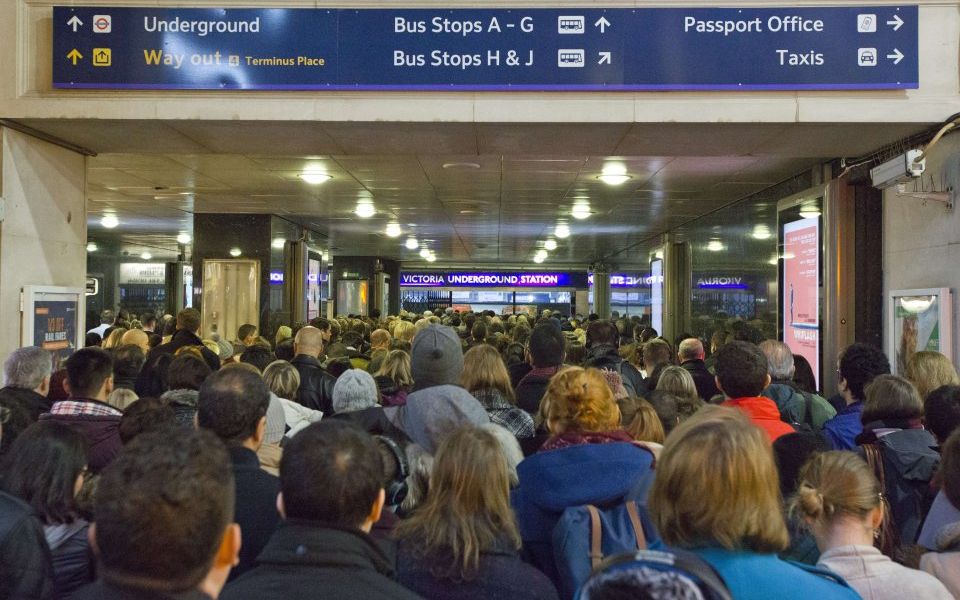The UK’s best and worst train companies ranked by passengers

Southern rail has been given the lowest customer score among train passengers, followed by Southeastern and Thameslink and Great Northern, according to a Which? report out today.
The majority of 2,865 respondents said they hadn't seen any improvement in train services over a year, with 67 per cent saying they felt their service had stayed the same. A fifth however, said they had noticed an improvement.
Which?'s annual rail survey found that many train firms were failing to adequately address basic aspects of service for customers.
Southern achieved a customer rating of 28 per cent, scoring one star out of five for value for money, reliability and punctuality. Over a third of commuters saying they felt the service had gotten worst over the past year, though a wave of industrial action on the network had eased.
Grand Central came top of the table on 64 per cent, followed by Translink NI, Virgin Trains West Coast and Chiltern Railways.
| Train companies ranked by passengers |
| 1. Grand Central |
| 2. Translink NI Railways |
| 3. Virgin Trains West Coast |
| 4. Chiltern Railways |
| 5. Virgin Trains East Coast |
| 6. Stansted Express |
| 7. Heathrow Express |
| 8. Gatwick Express |
| 9. c2c |
| 10. London Overground |
| 11. Cross Country Trains |
| 12. East Midlands Trains |
| 13. Merseyrail |
| 14. TransPennine Express |
| 15. Scotrail |
| 16. London Midland |
| 17. Arriva Trains Wales |
| 18. TfL Rail |
| 19. Great Western Railways |
| 20. Abellio (Greater Anglia) |
| 21. Northern Rail |
| 22. South Western Railway |
| 23. Thameslink & Great Northern |
| 24. Southeastern |
| 25. Southern rail |
A spokesperson for Southern's parent firm Govia Thameslink Railway, said today:
The Which? analysis fails to take into account the unique and complex challenges that face GTR compared to other train operators. Southern also operates a commuter service of over 2,200 services a day and is compared with other firms which operate far fewer trains and, in many cases, operate on long distance leisure routes.
Services are improving and we will introduce an enhanced train timetable in May to give passengers better reliability on Southern and a greatly expanded Thameslink network, creating 35,000-40,000 more seats into London.
GTR said recently it has worked to modernise its systems and make it easier for passengers to claim compensation, although City A.M. revealed earlier this month that around 25,000 Southern passengers entitled to special compensation due to heavy disruption on the network, had missed out.
The Which? survey reported that a quarter of commuters who claimed compensation said they found the process difficult, and 37 per cent of those who are eligible to claim compensation actually do.
GTR also announced this week it was introducing travel access aids to improve service for passengers who need help with communication, such as those who are hard of hearing.
It has created an accessibility communication guide – a pictorial guide to make it easier for customer service staff and passengers with communications support needs to understand each other.
Alex Hayman, Which? managing director of public markets, said:
Fares are going up but frustrated and long suffering passengers affected by seemingly never ending delays, cancellations and dirty trains don’t feel that their services are getting any better.
The problems don’t stop there. People are also finding it difficult to claim compensation when things go wrong. Automatic compensation must be introduced across the industry so that people can get the money they are owed.
Rail fares went up by an average of 3.4 per cent at the beginning of the year.
Jacqueline Starr, managing director of customer experience at the Rail Delivery Group, representing train operators and Network Rail, said:
The most recent survey of 30,000 passengers by the independent passenger watchdog Transport Focus found 83 per cent of customers were satisfied with their journey but rail companies continue to work together with a long-term plan to change and improve services further.
The partnership railway of the public and private sectors is doing more to improve journeys, better connect communities and boost the economy.